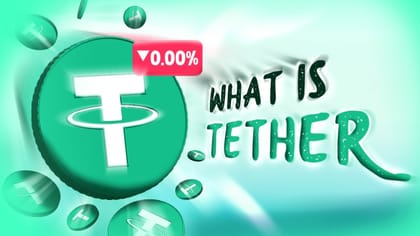According to the company’s roadmap, the integrations with Bitcoin and Ethereum would ensure higher network security and remove the need to use a bridge between chains.
On January 28, Dfinity's Internet Computer released its newest roadmap which outlines the projects for 2022 and 2023. Among these are the plants to launch integrations with Bitcoin and Ethereum by the end of 2022.
The Internet Computer (IC) is a public blockchain and protocol. Launched in May 2021 by Dfinity, it allows developers to install decentralized applications (dApps) and smart contracts directly on the blockchain.

Did you know?
Want to get smarter & wealthier with crypto?
Subscribe - We publish new crypto explainer videos every week!
What Is Tether? (USDT SIMPLY Explained With Animations)


The direct integration with Bitcoin is planned to be part of the Chromium Satoshi Release, slotted for the end of Q1 2022. As the summary of the roadmap project states:
The Internet Computer will add smart contracts to Bitcoin through an application of Chain Key cryptography that will directly integrate the networks. Smart contracts on the Internet Computer will be able to hold, send and receive bitcoin, without the need for private keys.
According to Berto Parga Pena, a member of the Dfinity community, the Chain Key cryptography used in this development is “a set of cryptographic protocols that orchestrate the nodes that make up the Internet Computer and the engine that drives it and makes its operation possible.”
Chain Key cryptography is one of the fundamental breakthroughs enabling the Internet Computer to scale to millions of nodes.
Diego Prats, Dfinity’s Director of Product, posted an update on the roadmap post on January 29, stating that smart contracts on the Internet Computer blockchain would “be able to hold, send and receive Bitcoin, without the need for private keys.”
Next on the board, the roadmap reveals plans for the Q3 2022 Vanadium Vitalik Release. While there is no detailed plan as of yet, one of the projects slotted is the integration with Ethereum.
The furthest look-ahead is the Futurium Post Quantum Cryptography Release scheduled for 2023. While there is very little information about this section of the roadmap, it provides a small glimpse into Dfinity’s long-term plans. Among these are works with Post Quantum cryptography and automatic subnet creation and management.
Back in December 2021, Dfinity enabled smart contracts as part of its ongoing Titanium Defi Release. These smart contracts, known within the IC ecosystem as Canisters, can hold their own balances of ICP tokens. As of the current release, the ICP supports 250,000 queries per second which are executed with up to 2-second transaction finality.
Earlier this month, BitDegree reported that Dfinity launched its first decentralized exchange (DEX) on the Internet Computer blockchain. The report stated that Dfinity had two more exchanges in the works.
The Internet Computer Protocol (ICP) token was up to 56% within the first week of 2022. However, it was recorded as one of the worst-performing crypto assets the year prior, as it plummeted 97% from its peak in May.
On January 4, Binance made the announcement that it would list a new financial instrument. It will enable traders to swap ICP to and from Ether (ETH) directly.
The concept of the Internet Computer was created by Ethereum technologist Dominic Williams, also Founder and Chief Scientist at Dfinity. It’s a concept of a perpetual world computer that will act as “the backbone for Web3.0.”






















